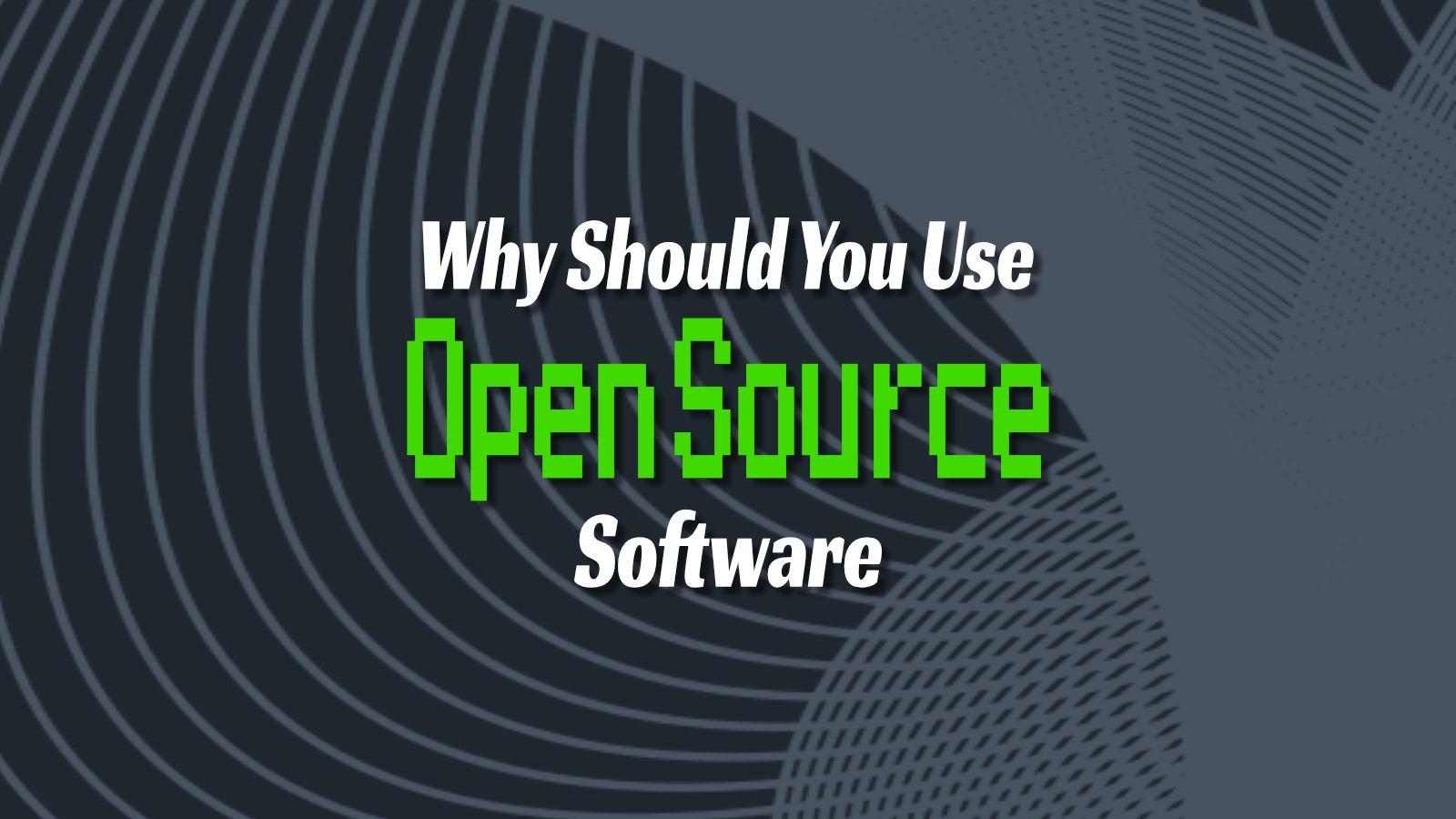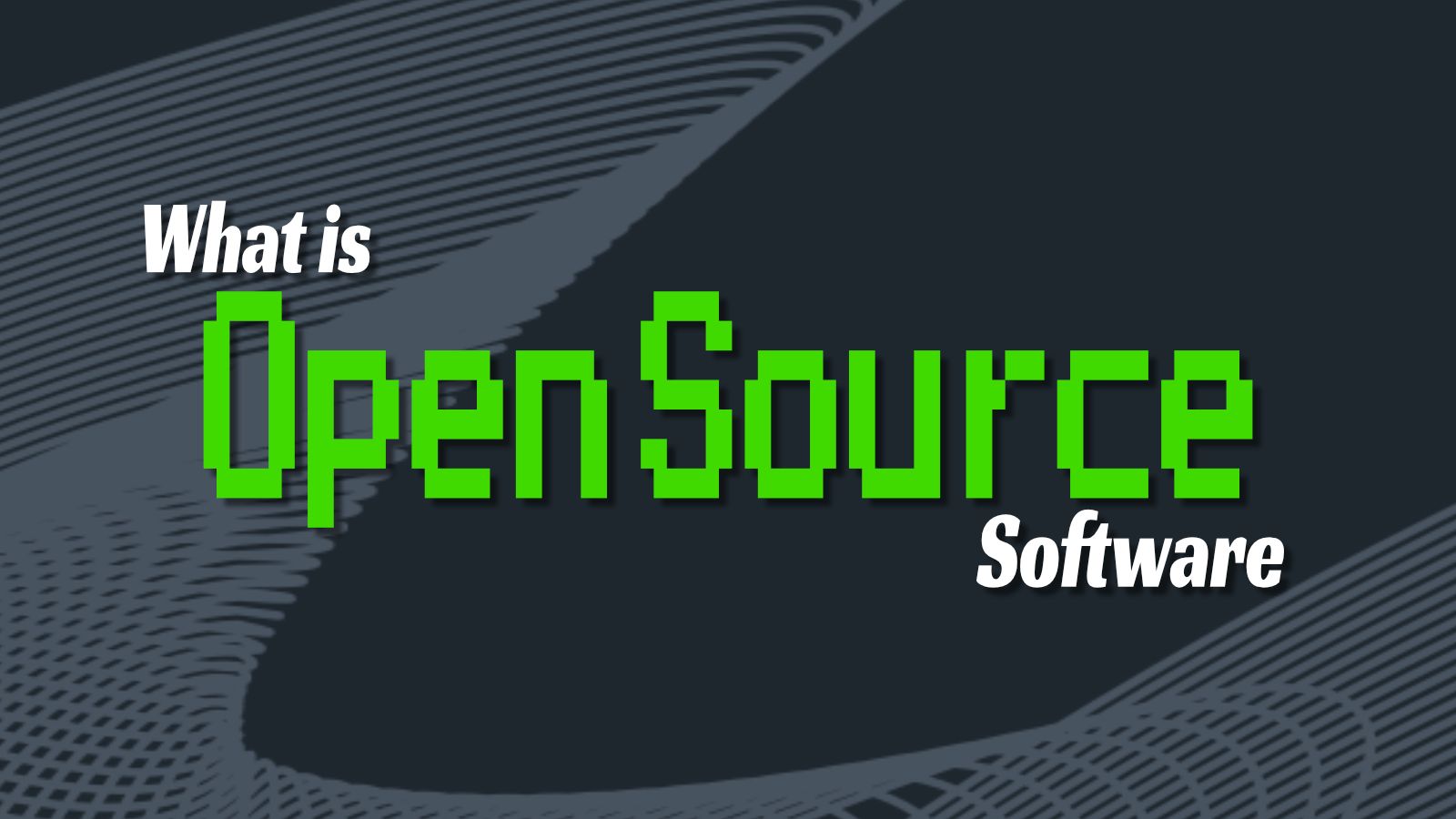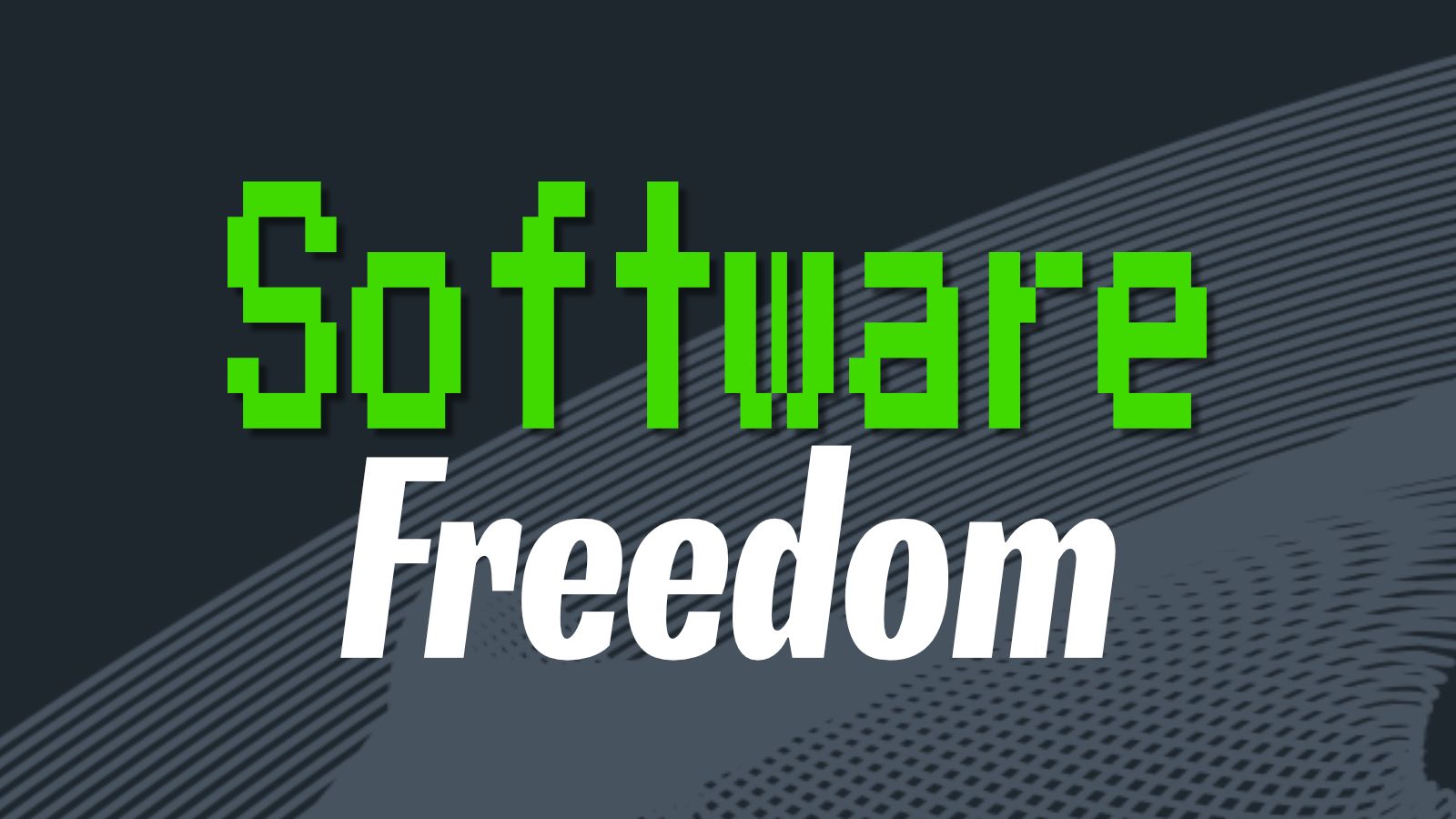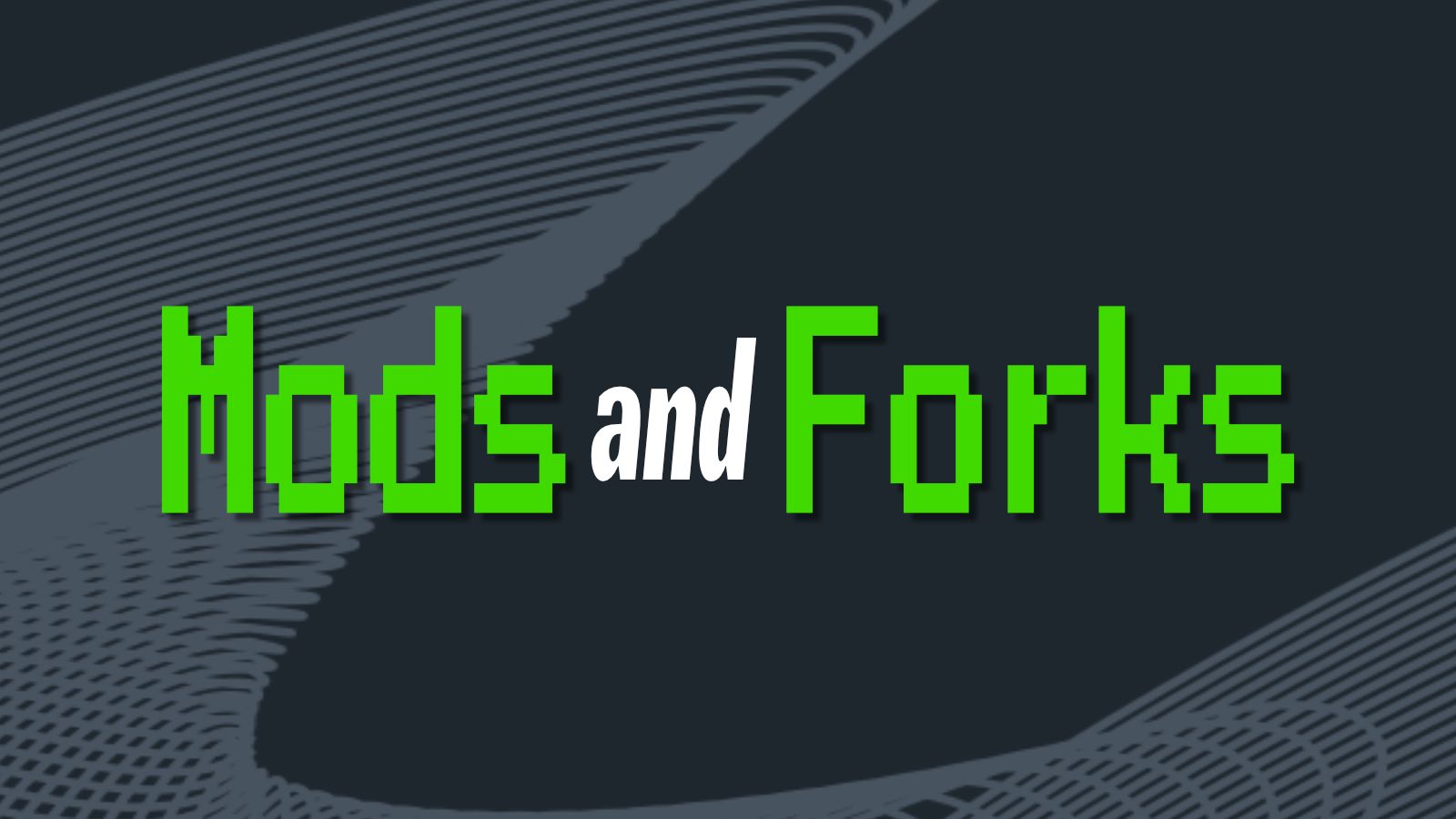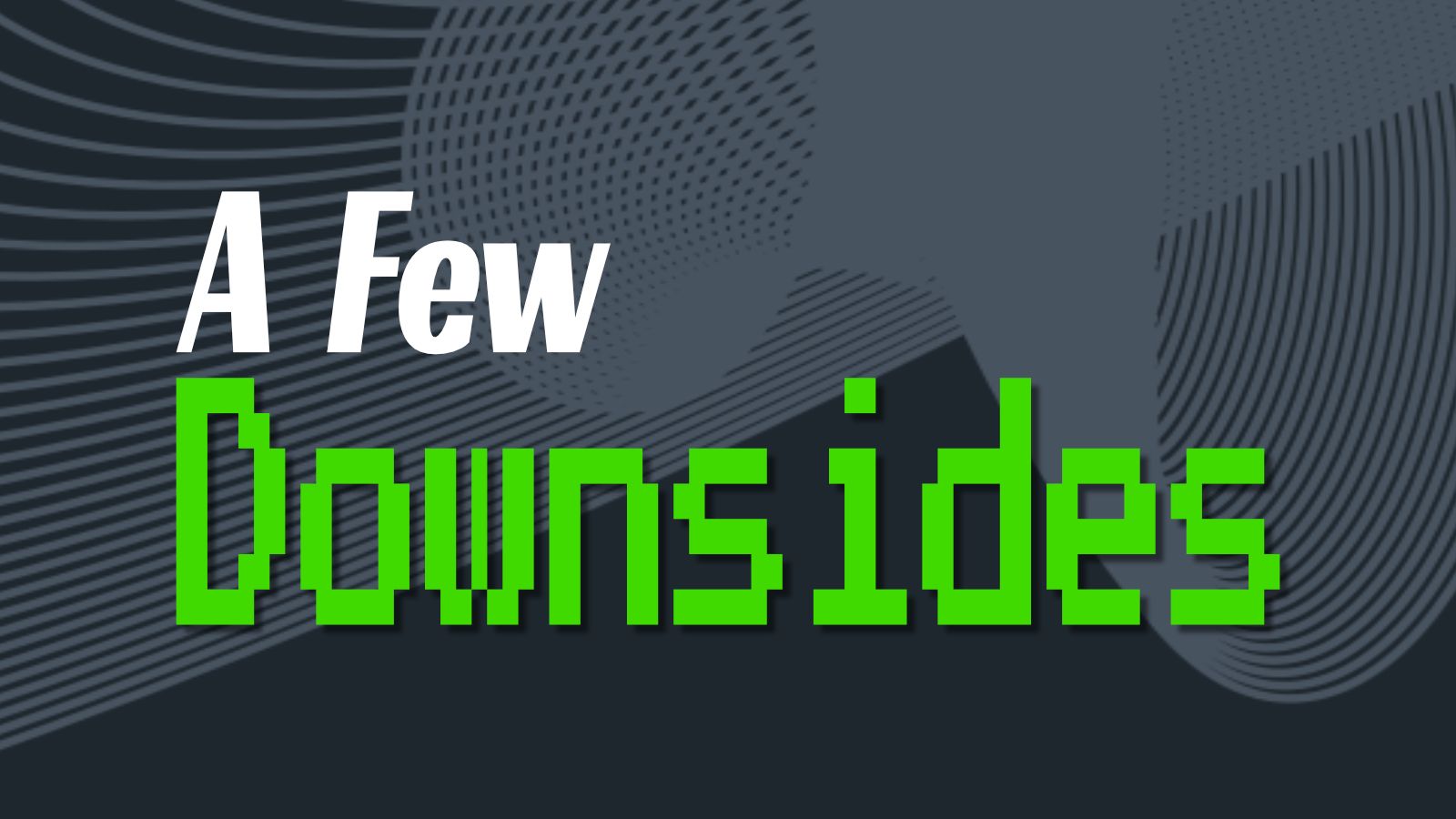Quick Links
Open-source software is something you've likely come across on the internet, commonly made by smaller development teams as free alternatives to popular programs. But this goes much further than price---open-source programs offer a lot of other positives that make them worth using.
What Is Open Source Software?
Let's start by actually defining what open-source means relative to software.
To put it briefly, this means the software's source code (which is the collection of code that makes up a piece of computer software) is public and can be modified, copied, or redistributed by anyone. This is opposed to proprietary software companies that produce closed-source software, which typically locks away the source code from users so it can't be modified. The vast majority of programs you use are probably closed source, as are major operating systems like Windows and macOS.
Open-source code allows people who aren't the original developers of the software to make small tweaks to it, or even create completely new pieces of software based on it. Those tweaks and complete overhauls can then be freely distributed to other users without going through the original developers. While open-source software uses different licenses to dictate what can and can't be done with the source code, it mostly relates to not using open source software to create closed-source software (so it won't affect you as a user).
While open-source software tends to be more niche compared to closed-source software, there are still some very popular examples you might have heard of. Some examples of open-source software includes the versatile photo editor GIMP, the Mozilla Firefox web browser, and the highly customizable Linux operating system. That's just a small sample of open-source software, but these are the best examples to show just how good open-source software can be. Open-source software can easily rival or best closed-source software made by massive corporations---let's look at the reasons why.
Software Freedom
If you're not a developer, you might be wondering how this benefits you as a normal user. Well, the largest advantage open-source software typically brings is that it's free. While open-source developers can charge for software because it allows for free redistribution, there's pretty much always a way to find open-source tools for free. Open-source software typically doesn't have ads like normal pieces of free software as well, usually making money through donations instead (both from users and larger companies).
"Free software" is a separate term though, and refers to any piece of software that doesn't charge, but there is a difference between free and open-source software. Because open-source software isn't just free in terms of price---"free" also refers to the freedom open-source software provides its users by being easily modifiable and more transparent. This extends to most open-source programs lacking any form of Digital Rights Management (DRM) as well, which is used by commercial software to combat piracy.
DRM can cause performance issues if poorly implemented and usually requires an internet connection so it can routinely check with the company's web servers if the license is legitimate. The latter can be especially bad if the developers go under. Unless the developers remove DRM in an update, once their servers go offline you won't be able to use that software again even if you paid for it---something that will never happen with open-source software.
There is a general focus on ethics and morals within the open-source community with how developers treat their users. While it's not a guarantee, this can help to ensure you're getting the best experience possible without being taken advantage of for private data. And because the source code is public, it's pretty easy for knowledgeable users to find out if the developers are doing something shady. You can look at the Open Source Initiative for more information on this---it's a great website that delves into the core principles of open-source software.
Overall, open-source software is transparent, user-focused, and, as we're about to talk about, highly modifiable. And while some of that will vary depending on the development team, those attributes characterize the best of the best in this field.
Mods and Forks
As we've already mentioned, open-source code allows users to freely modify a piece of software and redistribute their changes to other users. Many open-source projects operate through services like Github repositories, which makes sharing code extremely simple and allow for mass cooperation between many developers when creating the base software or modifications. These mods typically take the form of either plugins/add-ons or forks.
Plugins and add-ons are modifications of the program and can range from slight UI tweaks to totally new features. These still work through the original program version, and merely augment it in whatever way the developer of the plugin sees fit. How you install these vary per software, but these are a great way to customize an open-source program to your liking. Popular open-source tools will have loads of plugins created for them, so there's are a lot of options for you to mess around with.
Forks, or "distributions," on the other hand, change things up more significantly. These are separate pieces of software built off of the source code of an open-source program with different UIs and heavily altered features. It can be a great way to find different versions of a program that fit you better, while still getting the basic functionality as the original software. Take an open-source platform like Linux, for example, which has many distributions that modify the way the OS works to add features or make it more welcoming to new users, such as Ubuntu and Nitrux.
Whether it's a plugin or a fork, both of these are fantastic ways to make an open-source program even better, and it's one of the greatest advantages open source has over closed source.
A Few Downsides
We've largely focused on the positives of open-source software so far because frankly, open source is largely a positive thing. But while there aren't many downsides to a program being open source for users, there are some things of which you should be aware.
First off, open-source projects are often passion projects made by small development teams or individuals, which means that they can unexpectedly close at any moment. That's not something you need to worry about as much when it comes to more popular programs, but if you're using something smaller, the project discontinuing updates is always a possibility---especially if the developers aren't making money in one way or another.
Fortunately, the nature of open-source software allows a new development team to continue the project after discontinuation, so it's not as big a deal as when closed-source software stops receiving updates.
Secondly, while open-source software usually has good intentions behind it, we have seen some examples of users being manipulated by developers and owners. The most recent and popular example you can point to is Audacity---a very popular open-source audio editor. It was bought from its original developers by a company, who then tried sneaking in some shady spyware stuff in an update. This scared a lot of people off from the program, causing the new owners to (somewhat) backtrack.
Everything on the internet can be used maliciously and open-source software is unfortunately no different. While most teams and projects have their hearts in a good place, that doesn't mean you should lower your guard.
Looking outside the realm of privacy, there isn't much more to talk about as far as negatives go with open-source software. However, one thing worth mentioning is who most open-source software is designed for---power users. This means open-source software generally has a lot of advanced features and a UI to match. The bright side is this means many open-source tools can rival their closed-source competitors, but it can make it difficult to use if you're looking for something more beginner-friendly. But even then, that hardly accounts for all open-source software and is more of a common trend than anything else.
Basically, open-source doesn't bring any inherent downsides besides the general dangers of downloading things from the internet. None of this should be enough to scare you off, but if you're going to explore this world you definitely need to know about it.
Should You Actually Use Open-Source Software?
Ultimately, open-source software is a great way for users to receive high-end programs that are easily modifiable, transparent, and usually free (although, donating to the developers if you can is appreciated). There's no particular reason not to use open-source software, nor should you feel the need to only use open-source tools (unless that's your preference).
Just like with other software, open-source software should be treated on a case-by-case basis---some will be merely okay, some will be flat-out bad, but others will stomp the competition and establish themselves as one of the best options in their respective field. Along as the more advanced features and UI's these programs typically feature don't ward you off, open source is a great and always appreciated option in the world of software whether you're a developer or a user.

